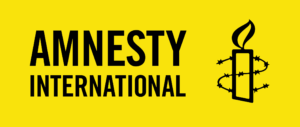Joint assessment by Amnesty International Hungary, Eötvös Károly Institute, Hungarian Civil Liberties Union, Hungarian Helsinki Committee, K-Monitor and Transparency International Hungary
The European Union is currently blocking EU funds to Hungary under three separate instruments:
● Under the conditionality mechanism, Hungary has committed to adopt 17 anti-corruption measures. In December 2022, the Council found that the remedial measures adopted up to that point had significant weaknesses, and decided to suspend 55% of the budgetary commitments under three operational programmes with regard to Hungary, amounting to approximately €6.3 billion. The Council also prohibited, in relation to EU funds, entering into financial commitments with public interest asset management foundations.
● Regarding Hungary’s Recovery and Resilience Plan (RRP), the Council defined numerous milestones with a rule of law connection, including 27 “super milestones” that Hungary has to fully and correctly fulfil before it can receive any payment under the EU’s Recovery and Resilience Facility – €5.8 billion in total. A significant part of the milestones coincides with the measures required under the conditionality mechanism, while four super milestones are aimed at restoring the independence of the judiciary.
● Finally, the European Commission found in relation to 10 operational programmes that Hungary fails to comply with the so-called horizontal enabling condition “effective application and implementation of the Charter of Fundamental Rights” (1) due to deficiencies around judicial independence (the same as the ones raised under the RRP), and so Hungary cannot access the respective EU funds until these are addressed. Under certain operational programmes, it is also set out as an obstacle to accessing funds that (2) the operation of public interest asset management foundations, many of them maintaining universities, (3) various elements of the Hungarian asylum system, and (4) the Hungarian anti-LGBTQI+ law adopted in 2021 also violate the Charter.
In order to comply with the above requirements and access EU funds, certain legislative and administrative steps were taken by the Hungarian government and governing majority. However, the implementation of the reforms falls short of expectations, also lacking both pace and genuine commitment, and the effectiveness and sustainability of the already adopted changes remain largely to be seen.
- As regards anti-corruption measures, the implementation of the commitments is far from being carried out at the right pace and with the ambition to achieve real results in the fight against corruption in Hungary. The implementation of many of the measures will at best only formally meet the milestones, and the implementation of the substantive commitments is already seriously delayed.
- The judicial reform package adopted in May 2023 remains fundamentally deficient: three out of the four respective super milestones are implemented defectively even at the level of the legal framework, and there are areas where further proof is required of the proper implementation of the milestones to verify compliance.
- The concerns related to academic freedom, the right to asylum and the principle of non-refoulement, and the rights of LGBTQI+ persons have not been resolved.
Hungarian civil society organisations provide a “traffic-light” assessment of Hungary’s compliance (i) with the conditionality measures and the milestones under the RRP, and (ii) with the horizontal enabling condition “effective application and implementation of the Charter of Fundamental Rights” in the areas identified by the Commission, and provide brief explanations on the main deficiencies regarding the implementation. The conclusion of our assessment is that, up until 15 November 2023, the Hungarian government had not taken adequate steps in order to fully address the rule of law and human rights concerns raised, and so it had not complied with most of the conditions established by EU institutions to access EU funds:
● Out of the 27 super milestones, 13 have been achieved, 12 have been achieved only partly, and 2 have not been achieved.
● Out of the 27 “ordinary” milestones and targets relevant from a rule of law and anti-corruption perspective that were due by the end of the third quarter of 2023 the latest, 9 have been achieved, 11 have been achieved only partly, and 7 have not been achieved.
● Out of the four areas of concern identified in relation to the operational programmes and the effective application and implementation of the Charter of Fundamental Rights, two areas have been only partially addressed, and two areas have not been addressed at all.

